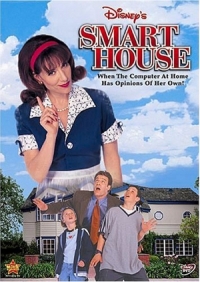By Kathryn Wolper

(Courtesy of Flickr)
Researchers from Microsoft and the University of Michigan evaluated the security of an Internet-connected home software that operates Samsung’s SmartThings, and found possibilities for serious security breaches according to Wired. SmartThings is one of many emerging smart home systems aiming to fully automate home security and maintenance functions and integrate them into the already mobile lives of users. Homeowners looking to adopt this technology must prioritize security, not novelty and convenience, in protecting their homes.
The idea of a completely automated home is both appealing and scary to the public. The 1999 Disney Channel Original Movie Smart House comes to mind as many millennials’ seminal experience of artificial intelligence and automated home security. While the film’s scope reaches far beyond the issues researchers found with Samsung’s SmartThings, the basic premises line up: issues arise when one puts home maintenance in the hands of any person or system besides oneself. Perhaps Samsung SmartThings users don’t have to worry about a virtual pseudo-mother trapping them in their home, but they should take precautions against hackers and keep themselves informed about the various ways in which electricians can compromise the security of their home.
Wired reports hackers can create new PIN codes to unlock doors without homeowners even knowing. Since, the systems are often connected to emergency response systems like police and fire departments, vulnerabilities in the system pose a threat to these public service systems.
The benefit of automated home management is the streamlining of the processes and responsibilities of homeownership. Mobile devices replace wallets and now they can replace keys. However, when access to bank accounts, files and one’s home are consolidated on one device, the value of that device increases, as do the consequences of losing it. Smart phones, laden with data and access to various accounts, become fragile high stakes devices. Any damaging circumstances would either limit the owner’s access to his or her own financial and security systems or put that access into the hands of someone with malicious intentions.
Early adopters of all new technologies are essential to the improvement and debugging of the systems. Those who choose to use mobile home security and automation before it is completely safe put themselves at risk, but they serve an important role in the development of technology.
Without early adopters, many technological concepts wouldn’t make it out of the beta stage. However, these early adopters must be cautious, well-informed and vocal about their experiences with the technology.
